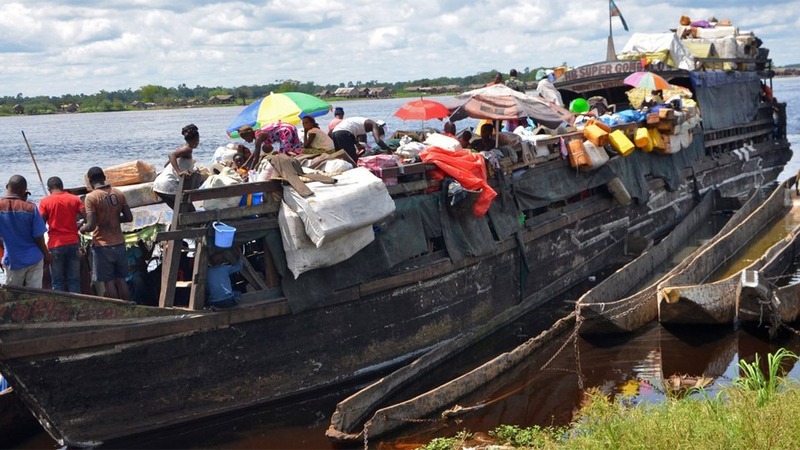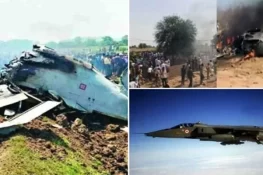Tragedy in Basankusu
At least 193 people have died in a boat accident on the Congo River near the town of Basankusu, Democratic Republic of Congo (DRC). Officials confirmed that a large number of the victims were students traveling between towns to attend schools and colleges.
The motorboat, carrying far more passengers and cargo than permitted, capsized late at night, plunging hundreds into the fast-flowing river. Rescuers have so far recovered more than 100 bodies, while dozens remain missing. Local authorities have warned that the chances of finding survivors are slim.
Overcrowding and Equipment Failure
According to eyewitnesses and local media, the accident occurred when the boat lost balance due to excessive weight. The vessel was not only overcrowded with passengers but also heavily loaded with goods placed unevenly on board. This caused instability and ultimately led the boat to overturn.
Reports also suggest a technical failure. Witnesses said the navigation system malfunctioned during the night journey, making it difficult for the crew to maintain control. Rescue teams are still searching the area with limited equipment, often relying on wooden canoes and fishing boats.
Students Among the Victims
Many of those on board were young students traveling from their hometowns to nearby schools. Families across the region are mourning their children, who were seeking better educational opportunities but never reached their destinations.
In rural parts of the DRC, river transport is the only viable means of travel. Poor roads and limited infrastructure force residents to depend heavily on boats, even when safety standards are not met.
A Pattern of Deadly River Accidents
Boat accidents are tragically common in the Democratic Republic of Congo. Similar tragedies have also been reported elsewhere in Africa, such as a recent disaster in Nigeria’s Niger State where more than 60 people died after an overloaded boat sank. The Congo River, stretching more than 4,300 kilometers, serves as the main transport route for millions. However, boats are frequently overloaded, poorly maintained, and operated by crews with little or no formal training.
In 2021, at least 60 people died when a boat sank in Mai-Ndombe province. The following year, more than 100 lives were lost in another disaster near Mbandaka. Despite repeated tragedies, reforms to improve river transport safety have been minimal.
Calls for Accountability
The latest incident has sparked fresh criticism of government oversight. Civil society groups and local activists argue that authorities have failed to regulate the river transport sector. Passengers are often allowed to board vessels with no regard for capacity limits, and life jackets are rarely provided.
Rescue officials admit that their operations are hampered by a lack of modern equipment. With vast stretches of river and limited resources, many bodies are never recovered, leaving families without closure.
A Country in Mourning
As search efforts continue, communities along the Congo River remain in shock. Grieving families have gathered along the riverbanks, waiting for news of their loved ones. Religious leaders have organized prayer vigils, while local schools have declared periods of mourning for the students lost in the accident.
This tragedy has once again highlighted the urgent need for investment in Congo’s transport infrastructure and stricter enforcement of safety standards. Without meaningful reforms, experts warn, similar disasters are likely to occur again.















